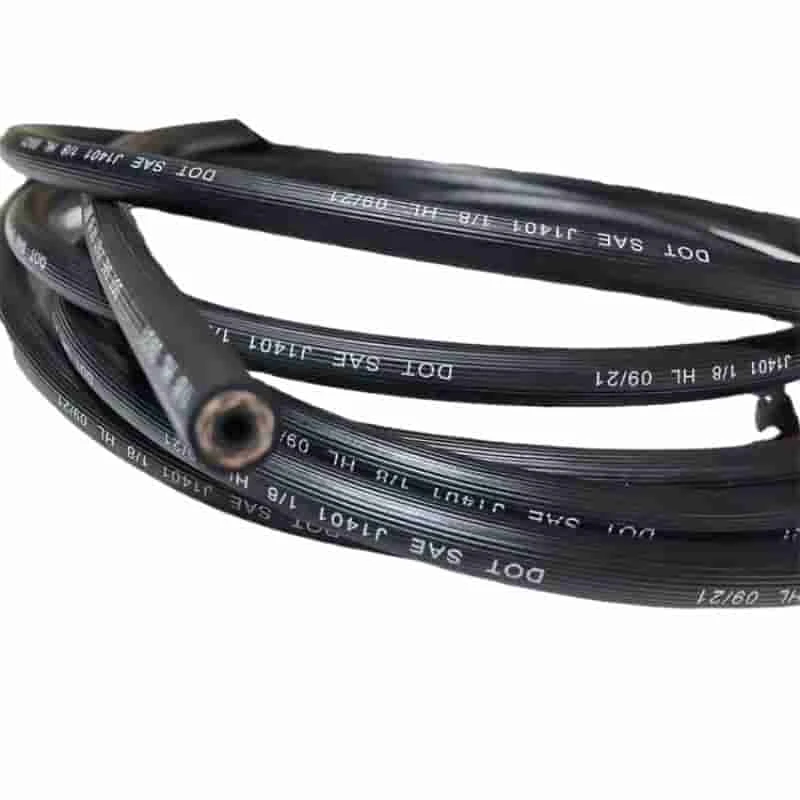new brake line
Desemba . 10, 2024 08:15 Back to list
new brake line
Understanding the Importance of New Brake Lines in Vehicle Safety
When it comes to vehicle maintenance, safety should always be the top priority for any driver. Among the countless components that make up a vehicle's braking system, brake lines play a crucial role that is often overlooked. These lines are essential for the proper functioning of both hydraulic and air brake systems. In this article, we will explore why installing new brake lines is vital for safety, performance, and maintenance.
The Function of Brake Lines
Brake lines are responsible for transmitting the hydraulic fluid from the master cylinder to the brake calipers or wheel cylinders, which apply the force to stop the vehicle. In air brake systems, they serve a similar purpose by carrying compressed air. The effectiveness of the brakes depends significantly on the condition of the brake lines. Over time, brake lines can become corroded, cracked, or damaged due to exposure to harsh weather, road conditions, or simply the passage of time.
Signs You Need New Brake Lines
Recognizing the signs that your brake lines need replacement can be the difference between a safe drive and a potentially disastrous situation. Common indicators include
1. Leaking Fluid If you notice a puddle of brake fluid under your vehicle, it’s crucial to address this immediately, as it indicates a leak in the brake lines.
2. Soft or Spongy Brake Pedal If your brake pedal feels soft or sinks to the floor, this could suggest that air has entered the brake lines, or there is a fluid leak somewhere in the system.
3. Unusual Sounds Any hissing or squealing noises when you apply the brakes may point to issues within the brake lines or other components of the braking system.
new brake line

4. Brake Warning Light Many modern vehicles are equipped with a warning light on the dashboard that illuminates when there is a problem with the braking system. Ignoring this light can lead to severe complications.
Why Replace Brake Lines?
1. Safety The most critical reason to replace old or damaged brake lines is safety. Failing brakes can lead to severe accidents, putting not only your life at risk but also the lives of others on the road. New brake lines ensure a reliable braking response, helping you stop effectively and maintain control of the vehicle.
2. Performance Worn or corroded brake lines can affect the overall performance of your braking system. Upgrading to new lines can improve braking efficiency, providing faster and more responsive stops, which is especially important in emergency situations.
3. Cost-Effectiveness While replacing brake lines may seem like an unnecessary expense, it is a small price to pay compared to the potential cost of an accident resulting from brake failure. Additionally, new brake lines often come with warranties, giving you peace of mind about their reliability and performance.
Choosing the Right Brake Lines
When it comes to selecting new brake lines, consider the material and type that best suits your vehicle. Steel lines are durable but may corrode over time, while stainless steel lines offer greater resistance to rust and last longer. For enthusiasts looking for enhanced performance, braided stainless steel lines can provide better pedal feel and resistance to expansion. Always consult with a professional mechanic to ensure you are choosing the best option for your specific vehicle.
Conclusion
In conclusion, new brake lines are a vital component of vehicle safety that should never be overlooked. Regular inspection and timely replacement of worn brake lines can significantly reduce the risk of brake failure, ensuring that your vehicle performs optimally. Drivers should be proactive in understanding their vehicle's needs to maintain safety on the road. Remember, a well-maintained vehicle is key to a safe driving experience, and it all starts with components as critical as brake lines. Don’t wait for warning signs to prompt action; take the initiative to check and replace your brake lines as necessary. Your safety—and the safety of everyone on the road—depends on it.
